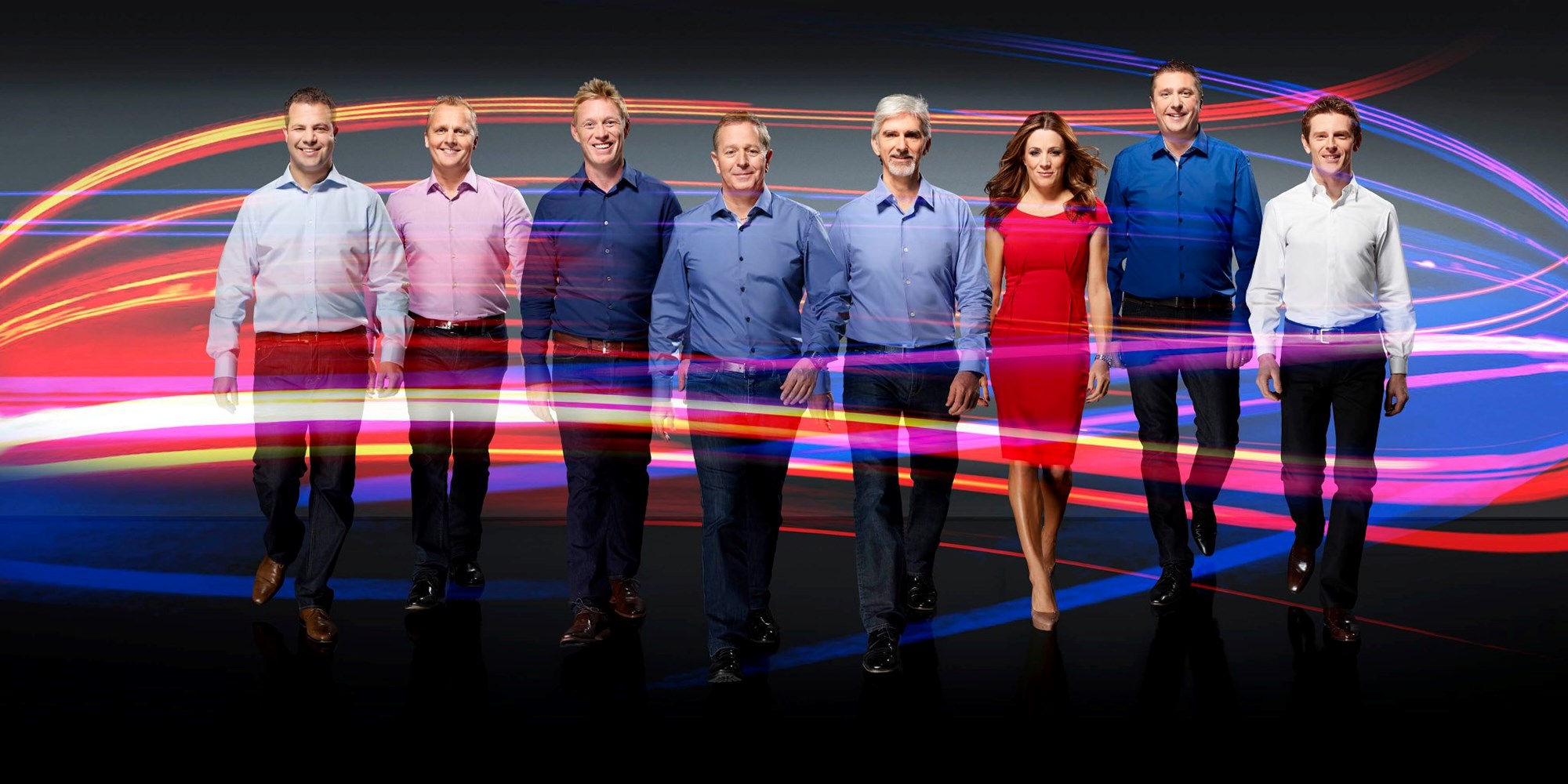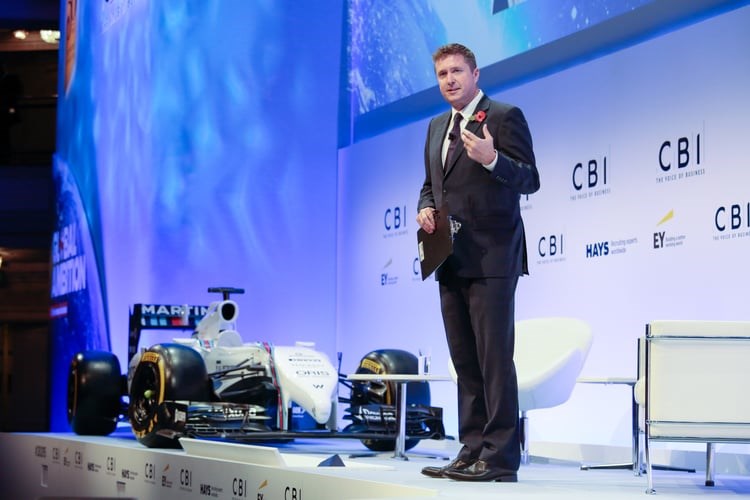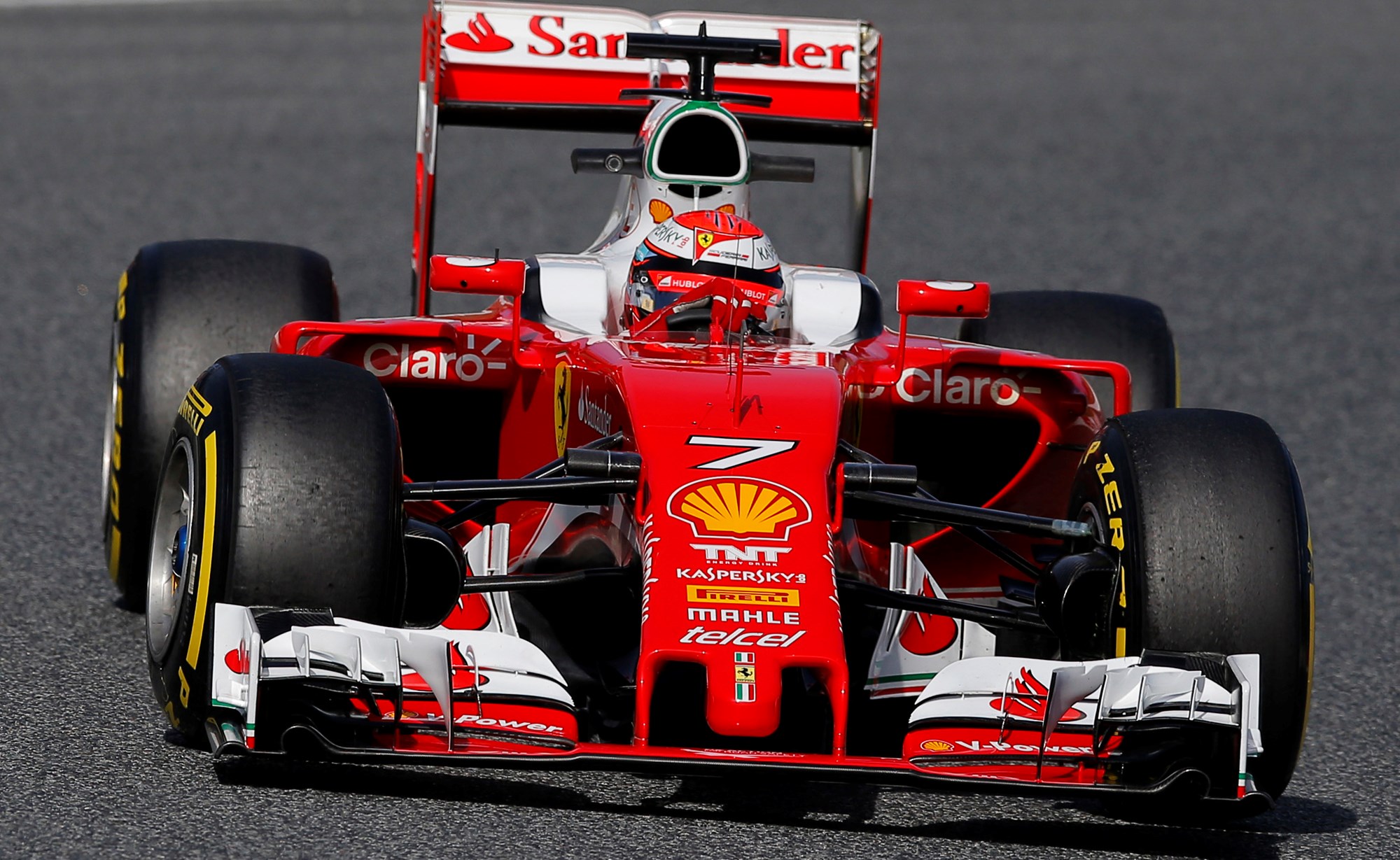We talk to Sky Sports Formula 1 commentator David Croft about history, the future, cats, and being on beaches in Bali
The world of Formula 1 seems so far away, even for those who are submerged in domestic motorsport. Even if this weekend's Melbourne Grand Prix is only a short plane-trip away, the idea of being part of the globe-trotting international circus is so out of the realms of reality that any time you get offered a taste or a window into that life, you can't say no.
To get an opportunity like interviewing Sky Sports F1 commentator David Croft, or 'Crofty' as he's fondly known, is rare. So — with me sitting down in an office in the middle of Auckland city, and him trying to regather his thoughts as he readies himself to depart from Sydney airport — we had a chat about the state of Formula 1, his incredible job, how he got there, and more.
Driven: How many years in the making was it getting yourself this dream job?
David Croft: When I was a little boy, all I ever wanted to be was a sports commentator, and somehow I manged to achieve that. Believe it or not, in a bar in Vegas in 2005 I first discussed the chance of being a Formula 1 commentator with the BBC — BBC radio at that time. They were looking for someone new and thought that I could do it. I was talking to the producer of the Formula 1 for the BBC, and I kind of auditioned to show that I knew something about the sport, and I got the job.
When Sky got the rights in the UK there was no question that I wanted to join them, that I wanted to be part of what I think is a fabulous package for Formula 1 that Sky Sports provide, and luckily they wanted me to be a part of it as well. Now I get a chance to stand there, working with my heroes — who I now call friends — the likes of Damon Hill, Johnny Herbert, Martin Brundle. I’m basically living the dream. It’s just the best job in the world.
Looking back do you have a favourite race that you’ve called? Either where you’ve felt your best as a commentator or where you’ve simply enjoyed the experience?
I think, for Sky, Bahrain 2014 was just epic, it really was. When we had that amazing battle between Lewis Hamilton and Nico Rosberg, when the lead was changing hands, when they were fighting all the way, when nothing was left out on the tarmac, everything was given by the two drivers, and Lewis pulled off quite a sensational victory. And we realized just how good that Mercedes car was.

The Sky Sports team from left to right: Ted Kravitz, Johnny Herbert, Simon Lazenby, Martin Brundle, Damon Hill, Natalie Pinkham, Croft, and Anthony Davidson. Photo / Sky Sports F1
That Bahrain 2014 will go down as one of the best races of the modern era, and Martin Brundle and myself, I kid you not, were purring like a colony of Cheshire cats; a cattery of Cheshire cats. Put it this way, we were in a happy place at the end of that. We took so long to calm down after the end of that race, we were jumping around in the commentary box — it was an incredible, incredible thing to try and call. We had no idea what was going to happen come the chequered flag, it was a fabulous race.
What’s the least glamourous element to working as a commentator in Formula 1?
I’m looking around Sydney Airport at the moment, and it’s not too bad, there are worse airports on the planet. The travel is obviously quite a thing; 21 races this season, that’s a huge part of my life spent away from home. Living out of a suitcase and living out of hotels sounds really glamourous, but they’re not all that glamourous to be fair.
But you kind of put up with it, because — on one hand, yes I’m away from home and I’d like to be at home more often, but on the other I’m travelling the world with my friends, and I’m being paid to do a job that I love. I don’t tend to look at the negatives, we have six races in eight weeks of the summer, which is an exhausting schedule; not just for me, but for all the drivers, the guys in the garages, everyone in Formula 1.
But you put up with that, because to job is so special and wonderful, that to complain about it would seem churlish. Because I’m sure that there are millions of people that read your website and that listen to Sky Sports F1 that would quite gladly swap places. And I’m not prepared to let them just yet.

Photo / davidcroftsport.com
You mention the 21 races this season. That and the new knock-out qualifying format are probably two of the most discussed changes of 2016. What are your thoughts on the two changes?
First of all, 21 races I think is a strain on everybody. It proves that Formula 1 is popular and that people want to be hosting Formula 1, and there’s no shortage of countries that want a Grand Prix. But it does make the year as a calendar very very congested at parts, and I hope that people can cope with that.
The new qualifying, I’m not going to poo poo it, I’m not going to say that it’s an absolute disaster waiting to happen, because we haven’t seen it in action yet. But it is an affix to the question that no one was asking, which is ‘how do we improve qualifying?’ I thought qualifying was fine, I didn’t think it needed improving.
The idea [behind it] is not to make qualifying better, it’s to mix up the grid a little bit and maybe make the racing better on the Sunday. So if the price of making and improving Sunday’s racing is making qualifying not quite the way we’re enjoying it, well maybe that’s the price the sport can pay. But I’m going to be so interested in how it works, not just on Sunday but in the first few races.
I hope that what we don’t get is those clever strategists finding a way to avoid all the excitement to get their guys through, because we do want excitement — if you don’t get excitement in sport then there’s no point having it. Luckily, for all its problems, Formula 1 still does excite me and so many millions of people around the world very much every single weekend.
This is one of those questions where I don’t want to sound like a dick in asking it …
… I’ll try to not sound like one in answering it then [laughs]
… a lot of the older fans still pine for Formula 1’s ‘days of old’, where there were bigger engines, we had wilder aero, and all of that kind of thing. Would you like to see a return to that, or are you happy with the 2016 Formula 1 product?
I’m not totally happy, I think there are fundamental issues that the sport needs to address. Improving overtaking, getting closer racing first and foremost is what needs to happen.
I’m not one who yearns for yesteryear, I’m not one who looks through rose-tinted glasses at the past. The past was great, I grew up in the ’80s and we were wearing ‘Frankie said’ t-shirts, but I don’t think we should be going back to doing that now.
We can look back and look at edited highlights and think it was great back then, but sometimes it wasn’t. Some say during the Schumacher years, it wasn’t great, and now with Mercedes dominating people think it’s not great — that’s sport, it happens, people will dominate from time to time.

Photo / AP
Formula 1’s got to be relevant for the future. We talk about the power of these [current] engines, but we don’t marvel in the fact that these 1.6-litre V6 hybrid turbo engines are producing more brake horse power than the old V10s did. They might sound a lot less powerful, but they’re not, and they’re a phenomenal piece of work. Yes they’re expensive, yes they’re complicated, and it’s caused a lot of problems in terms of teams being able to afford engines but steps are being taken to make sure the engines are more affordable in the future — and that’s right, that should happen.
But these are incredible engines, they really are, and one day we’ll be sitting at the traffic lights in our hybrid cars, we’ll look at each other and we’ll have a little sideways glance, and I’ll say “OK I’ll race you off the line” — because we’ll be in hybrids but they won’t be slow hybrids. The technology used in Formula 1 now will power our cars in the future, and we as road-going drivers and consumers will benefit from that. Formula 1’s got to be at the pinnacle of technology, it’s got to be driving for the future; it can’t be stuck in the past all the time.
I think people are expecting truckloads of change for the 2017 season, given all the chatter about stuff like the halo concepts as well as the other regulatory changes on the table. Are you also expecting a lot of change?
We’ll see change, they’ll agree on change; whether it’ll be the right change or not we’ll see in the test of time. I just wonder at the moment why… We’re in a sport where it seems the teams have a bit influence in the rules and the way that the sport is framed for the future, and maybe it’s time that that stopped happening.
Maybe the best thing for Formula 1 is to take that away from the teams, and have somebody — I don’t know who that is — to shape those rules. Someone with knowledge, who’s impartial, who’s not got a vested interest. Then maybe we can accept what happens a lot easier, and the teams can just get on with the job of going racing, which is I’m sure what they already want to do.
I’m not convinced of the 2017 regulations just yet, but once again I don’t come from the camp where I’m going to totally down things before they happen. Because what’s the point in that?
Luca di Montezemolo, when he was Ferrari President, went to Bahrain in 2014 talking about ‘racing for taxi drivers’, and in the end had to get into a taxi before the end, and missed the climax of that thrilling race. You don’t want to make too many predictions about the future, because if we knew the future we wouldn’t be talking today; we would’ve won the lottery and we’d be sat on the beach in Bali somewhere.
Back to commentary, who’s your favourite person that you’ve ever worked with in the Formula 1 commentary booth? I imagine Brundle ranks up there somewhere …
Martin Brudle is an absolute legend. 20th year as a Formula 1 commentator, unbelievable. He is a mountain of knowledge, he is a funny man — not peculiar, but funny ‘ha ha’ — and I thoroughly enjoy working with Martin, I really do. We laugh and we joke and we basically enjoy each other’s company. He inspires me because he is the best of the best, and I hope that I bring out the best in him as well, that’s why we’re such a good team.
I love working with Ant, Anthony Davidson, who I’ve worked with for the best part of nine years. Ant’s a totally different person but we have a laugh as well because we’re good friends as well. I’ve worked with some of my all-time heroes; Trevor Brooking — I’m a West Ham fan and I’ve done Football commentaries with Trevor Brooking, and trust me they’ve been an absolute delight as well.
But, Martin is magnificent in the commentary box, he makes it look easy, so you feel feel relaxed and more comfortable, which is always good.
What about drivers? Are there any that you enjoy talking to more than others?
I like talking to them all, but I like talking to Kimi [Raikkonen] a lot because it’s a challenge because he doesn’t say much, so you’ve got to ask proper questions to get him to talk — and when you do you feel like you’ve done a good job. It’s not the greatest thing to say, it’s just that the guys tire of dull questions, as I’m sure you do. So it’s up to me to make the questions a lot more interesting.
So, lastly, what kind of advice can you offer those wanting to chase a job in commentary?
I always love these questions; “give me some advice on how to get your job.”
Here’s what I did. I pursued my dream, this is what I wanted to do and I didn’t take no for an answer, and I found a way to get on the ladder and worked as hard as I could to try and prove myself and get into a position where, one day, I might get a lucky break.
I worked in the theatre, I joined the BBC on the local radio on a one-month contract when I was 25 — gave up my full-time job for a one-month contract, and the chance of extending that contract, to see if it could lead to something. And 21 years later it led to something.
Don’t let anyone say you can’t do it. Practice, practice, practice. Immerse yourself in the sport that you want to do. And don’t take rejection as the final answer, take it as the start of another chapter where you’ll hopefully persuade people that they were wrong and that you’re the right person.
Thanks for that David, hope you have a good call this weekend!
Absolute pleasure. I can’t wait, I really can’t — 21 races, let’s do this thing!
SKY Sport's LIVE coverage of the upcoming 2016 Formula 1 Season begins on Friday at 2.15pm on SKY Sport 4, where Crofty, Brundle, and the team will be there to guide you through the drama.




